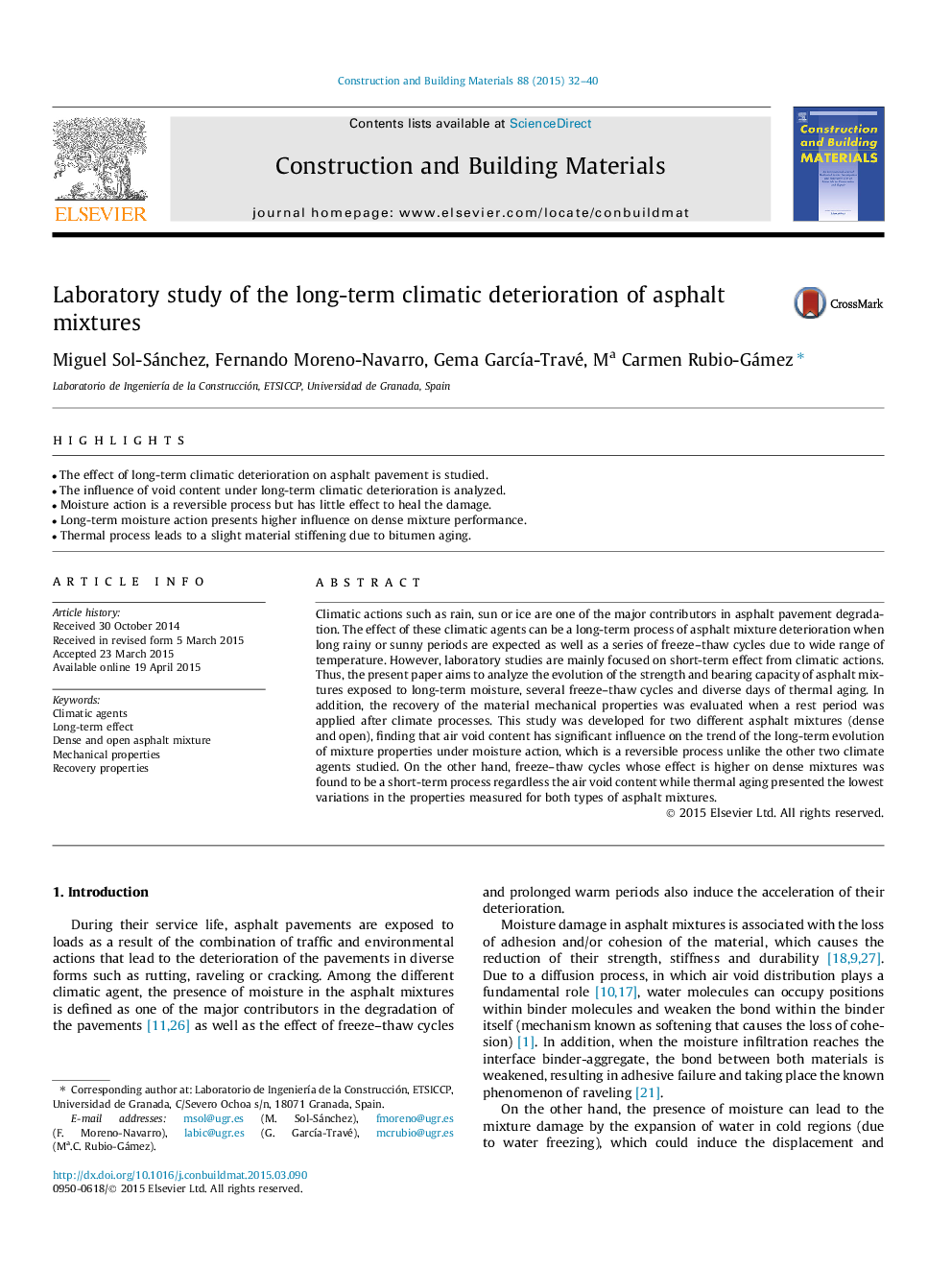| Article ID | Journal | Published Year | Pages | File Type |
|---|---|---|---|---|
| 256949 | Construction and Building Materials | 2015 | 9 Pages |
•The effect of long-term climatic deterioration on asphalt pavement is studied.•The influence of void content under long-term climatic deterioration is analyzed.•Moisture action is a reversible process but has little effect to heal the damage.•Long-term moisture action presents higher influence on dense mixture performance.•Thermal process leads to a slight material stiffening due to bitumen aging.
Climatic actions such as rain, sun or ice are one of the major contributors in asphalt pavement degradation. The effect of these climatic agents can be a long-term process of asphalt mixture deterioration when long rainy or sunny periods are expected as well as a series of freeze–thaw cycles due to wide range of temperature. However, laboratory studies are mainly focused on short-term effect from climatic actions. Thus, the present paper aims to analyze the evolution of the strength and bearing capacity of asphalt mixtures exposed to long-term moisture, several freeze–thaw cycles and diverse days of thermal aging. In addition, the recovery of the material mechanical properties was evaluated when a rest period was applied after climate processes. This study was developed for two different asphalt mixtures (dense and open), finding that air void content has significant influence on the trend of the long-term evolution of mixture properties under moisture action, which is a reversible process unlike the other two climate agents studied. On the other hand, freeze–thaw cycles whose effect is higher on dense mixtures was found to be a short-term process regardless the air void content while thermal aging presented the lowest variations in the properties measured for both types of asphalt mixtures.
